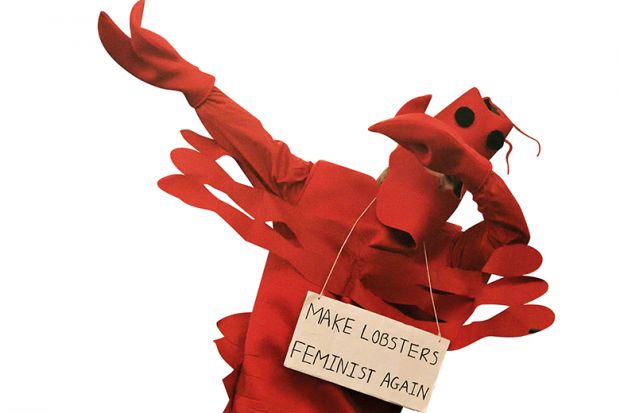As the wintry months turn icy, the winds of a new intellectual Cold War are sweeping across UK universities.
Having blown across the wider cultural and political landscape for some time, these winds are starting to bite on campuses, with the recent debate at the University of Cambridge over whether staff must be “respectful” of each other’s “differing opinions” showing that once-fringe issues of identity politics and whether the likes of Jordan Peterson should be invited to campuses are now firmly embedded in university discourse.
Moreover, staying above the fray is increasingly difficult and many more academics feel obliged to choose sides within this divisive “with us or against us” framework.
But the divides within the culture wars are not as simple as they may appear and can no longer be explained in terms of orthodox left versus right, or even liberal versus conservative.
Instead, two increasingly vocal minority tribes are amassing. On one side we have “the preservationists”, cheer-led by the likes of Douglas Murray, who seek to uphold a conservative order of politics and public discourse. In opposition, we have what could be called the “new religious left”, which seeks to bring every grievance by those assumed to be the victims of history (which often places economic inequality at the bottom of the pecking order) together to fight over the very heart and meaning of the university.
But what happens to those of us who don’t identify with either position?
For many academics outside both camps, their major concern is that universities are no longer a battleground of ideas – one of their main selling points when recruiting arts, humanities and social science students, at least. Many worry that the free circulation of ideas is being stymied, making it too difficult to interrogate controversial concepts without fear of censorship or the need to self-censor.
The division of campuses into distinct ideological blocks has only added to a toxic atmosphere in which both sides seek to reduce highly complex and unsettled debates into immovable understanding.
The moral certainty invoked by both sides is also problematic. It is maybe most visible among a distinctly vocal, albeit small, group of academics from the new radical left who seem to have little concern with the conflicts and disagreements that inevitably arise in political discourse. Instead, fuelled by social media grandstanding, there seems to be an assumption that there is no requirement to even engage the opposition in debate.
My unease about the dilution of debate on campus is compounded by the continual recourse to emotion to win arguments. Considering the feelings of others is no doubt important in terms of basic human decency and ethics. And certainly, universities need to show care for the mental health of their student community. Yet we know from history that the mobilising of emotions is the surest way to liberate fascistic sensibilities, while doing little to facilitate in-depth interrogation of ideas.
It has been particularly apparent in the high-profile calls for “no platforming”. What is never answered in these debates is, who decides? Whose sense of being offended really matters and whose emotions do we consider to be truly authentic? Some may be deeply upset that Peterson or even J. K. Rowling may now speak on a campus. But might a small and marginal group of devout Roman Catholic students not also be deeply upset by the arrival of a radical feminist speaking about the right to abortion?
My point here is that politics is emotional, and we have to be open to the fact that, on occasion, ideas will be intellectually and emotionally challenging. The alternative is a descent into emotional tyranny, which will invoke its own hierarchies of truth based upon highly politicised notions of victimisation that are far from settled.
This approach precludes nuance, adding to the sense that academics must take sides in the so-called culture wars. Maybe, however, scholars can resist this Manichean thinking.
It is perfectly fine to recognise the history and the continued legacy of sexism, racism and transphobia, while also believing in the idea of free speech and to challenge the infantilisation of political discourse and emotions. It is also reasonable to demand more representation for minorities within academic recruitment, while also being willing to question the limits of authenticity. It is acceptable to appreciate the conceptual importance of intersectionality, while also critiquing its problematic developments when it comes to grand claims of white fragility and privilege. And it is perfectly acceptable to recognise that words can be injurious, yet also recognise that confronting intolerable things is necessary if we are to ask deeper questions about the most pressing issues that society faces.
With hindsight, the teachers who undoubtedly inspired me the most never once tried to convince me of their arguments so that I was subsequently signed up for whatever cause. They simply lit the spark which insisted that, even though thinking was perilous, it must be open and conflictual. The real danger with falling into this new intellectual Cold War is that the art of free thinking itself may become one of the first casualties.
Brad Evans is a professor of political violence and aesthetics at the University of Bath.
Register to continue
Why register?
- Registration is free and only takes a moment
- Once registered, you can read 3 articles a month
- Sign up for our newsletter
Subscribe
Or subscribe for unlimited access to:
- Unlimited access to news, views, insights & reviews
- Digital editions
- Digital access to THE’s university and college rankings analysis
Already registered or a current subscriber? Login








